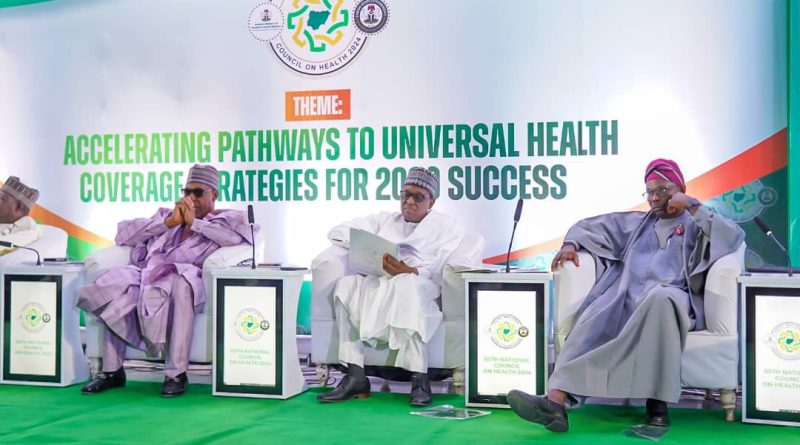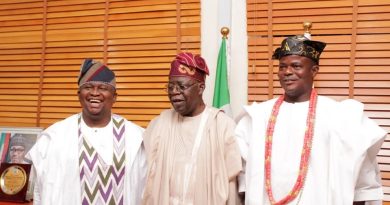FG Is Collaborating With Experts in Diaspora For Better Healthcare Through Telemedicine- Salako
The Minister of State for Health and Social Welfare, Dr. Iziaq Adekunle Salako has disclosed that Nigeria is collaborating with experts in diaspora to provide needed support for better healthcare through Telemedicine that connects patients and providers in real time, reducing geographical barriers, especially for rural or underserved populations. He stated this on Thursday, November 21, 2024 at the opening session of the 65th National Council of Health being held at the Mohammed Indimi Centre for Distance Learning, University of Maiduguri, Borno State. He noted that the Federal Ministry of Health is working to improve and maintain standards at service, research and ethical levels through the inauguration of strategic committees in line with the National Health Act 2014 and other extant laws.
“The Special Presidential Initiative on Unlocking Health Value Chain (PVAC) when fully on stream is expected to grow our local pharmaceutical industries and enhance the local content of the drugs and other consumables in our health system. As part of the PVAC, it is our vision to pay concerted attention to the development of local herbal drugs putting many more of them in the hands of clinicians by subjecting them to standardized clinical trials that can boost prescription confidence”, the Minister noted.
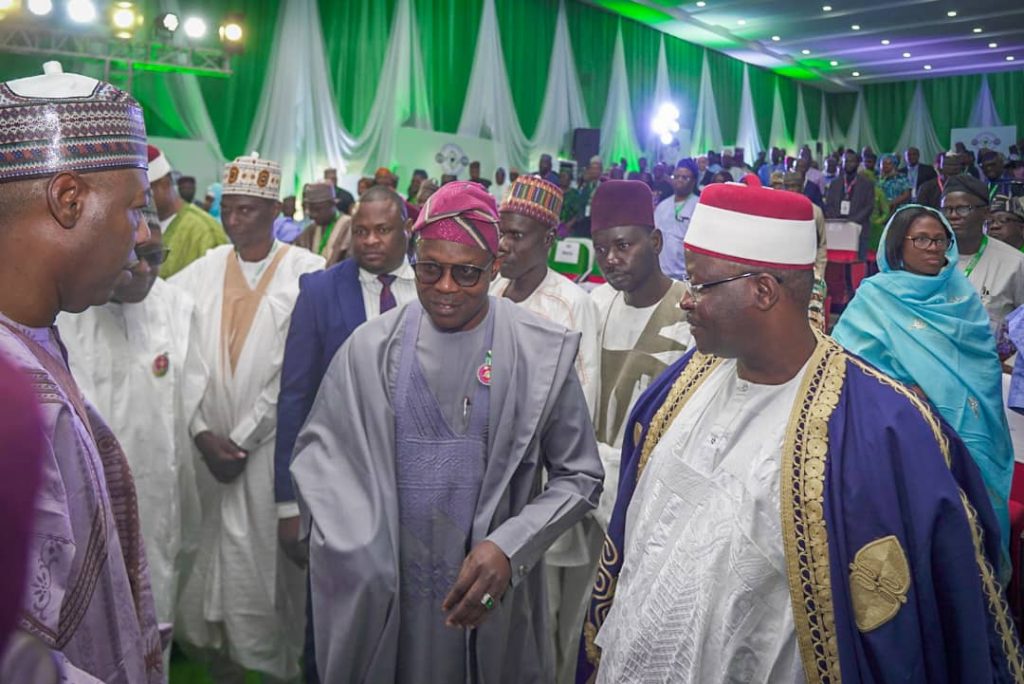
In the spirit of one health, he said the Ministry is working with other relevant ministries especially Environment, Agriculture and Food Security and Water and Sanitation to address other determinants of health outside the immediate purview of the health sector.
“Clearly, the Federal Ministry of Health and Social Welfare in full cooperation with the sub-national governments, our development partners NGOs, CBOs, health worker unions and all stakeholders is poised to change the narrative around our health sector and ensure that Nigerians have access to qualitative and affordable healthcare that they need at every point it time and also set our health indices on a trajectory of improvement for a wider impact on the socio-economic landscape of our country. I call for the cooperation of states, our partners, health workers and all health stakeholders for a continuous national dialogue on how to put our health system on the trajectory of sustained equitable growth”, he added.
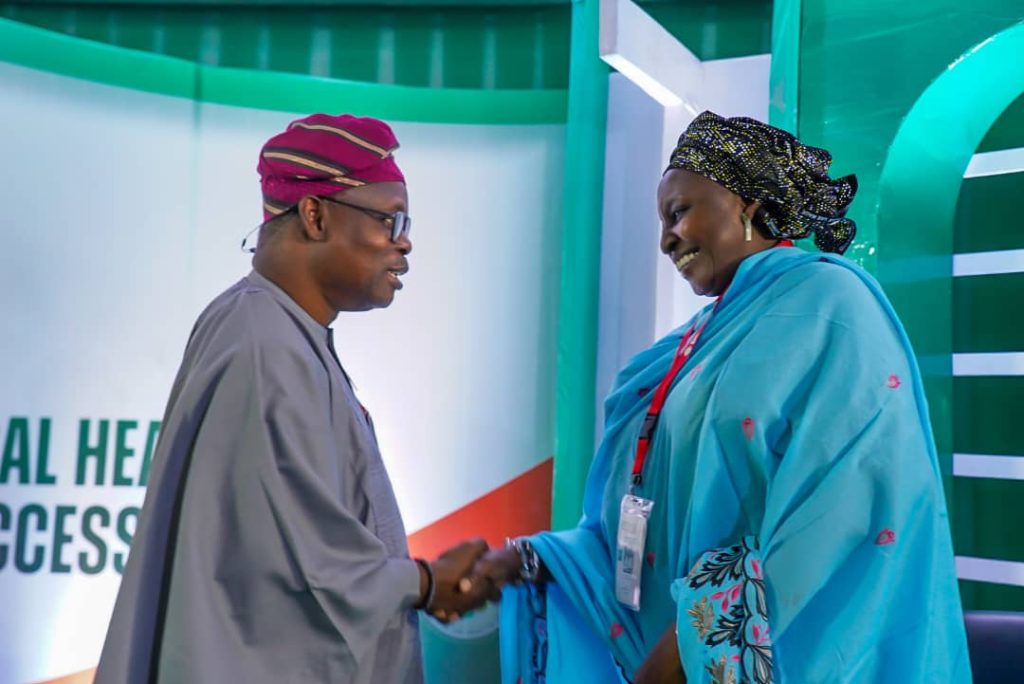
The Renewed Hope Agenda of President Bola Ahmed Tinubu GCFR for the health sector, according to Salako, is to provide to all Nigerians, particularly the vulnerable population; qualitative, accessible, affordable and responsive healthcare services that does not put Nigerians in financial hardship. He emphasized that the Universal Health Coverage (UHC) by 2030 is not just a slogan or a catchphrase but a commitment that is backed by a robust pathway to deliver on it in an inclusive, equitable and evidence driven manner.
“The recently released Medium Term Expenditure Framework and Fiscal Strategy Paper (MTEF&FSP) has as part of its key objectives to improve health crisis preparedness and revitalize the Nigeria health system. This strategic direction amongst other pronouncement and actions of the Federal government clearly demonstrate that the Federal Government of Nigeria under President Tinubu is determined to walk the talk with respect to Universal Health Coverage and general improvement of the health status of Nigerians. I call on our 36 state Governors to borrow a leaf from this commitment of the President and ensure the faithful implementation of the health renewal compact that was signed in December, 2023”, he said.
Salako who was redeployed from the Ministry of Environment to that of Heath and Social welfare noted that from the comprehensive briefing that he had received in the last two weeks, he is confident that the deliberate strategies and action plans being implemented and those in the pipeline would ensure that the Ministry meets the goal of UHC by 2030.
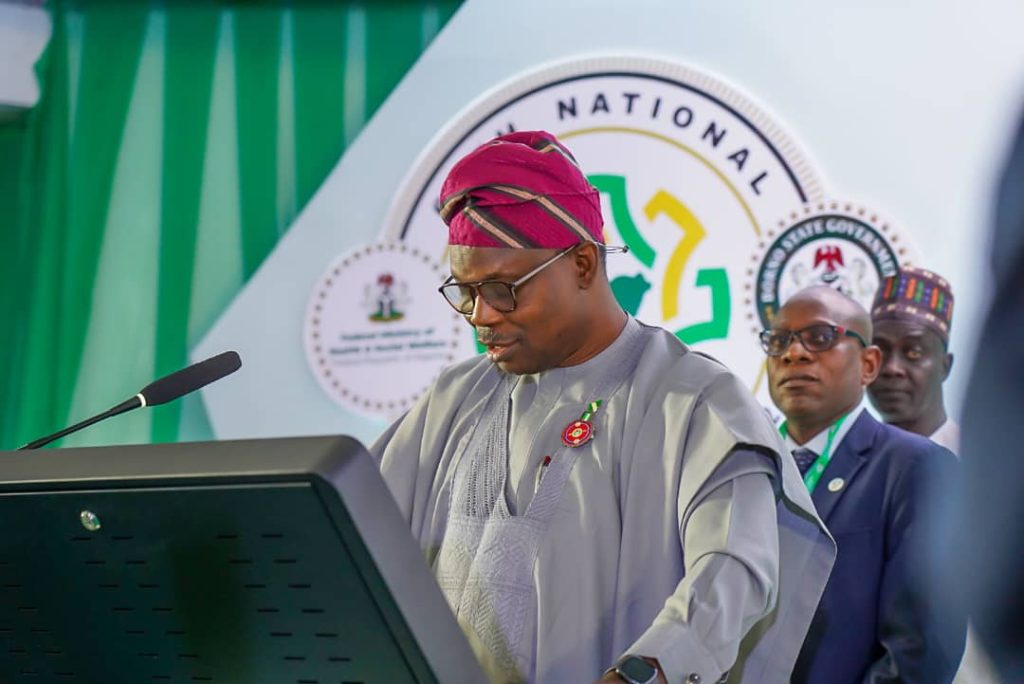
“These strategies and action plans include the strengthening and prioritizing Primary Health Care (PHC), the reorganization of the Basic Healthcare Provision Fund, training and retraining of our health workers especially at the PHC level, infrastructural upgrade of healthcare facilities across tertiary health institutions with emphasis on essential equipment and supplies in diagnostics for cancer care management, neonatal units, vaccines, and diagnostic tools to cater specifically to children and maternal health needs and deliberate emphasis in health promotion and disease prevention. Community Health Workers are being empowered to educate our people at the community level about primary and secondary prevention focusing on immunizations, health habits, health nutrition, behavioral changes, environmental health and screening for non-communicable diseases.
“Health research is being prioritized through the recently revitalized National Health Research Committee, digital health innovations including Electronic Health Records (HER) and Health Information Exchanges (HIE) is being introduced through the Nigeria Digital in Health Initiative (NDHi) as an important pathway to transform healthcare delivery, improving accessibility, efficiency, personalization, and cost-effectiveness. The NDHi is expected to improve access to comprehensive patient records thus enhancing care coordination and reducing redundant tests or treatments and also enhance smoother transitions between the levels of care”, he said.
He said despite the robust plan and the progress being made, the council must continue to review, realign and refocus to ensure that the team is on track.
“The challenge of recurrent strike in the health sector is clearly a major factor that can derail our set out plans for the renewal of the health sector in our country. The incessant strike in the health sector is not only demarketing the sector and the various professional bodies within the system, it is a major stumbling block to the UHC agenda. This is therefore one area that we are prioritizing by putting in place a robust mechanism to ensure that strikes within the health sector are prevented as much as possible. I must at this point therefore appeal to the Medical and Dental Consultant Association of Nigeria (MDCAN) who are currently on a 7 days warning strike to please call off the strike. The core of the issues that necessitated the strike action are not within the mandate of the Federal Ministry of Health and Social Welfare to resolve but we are already in active discussion with the Federal Ministry of Education to address them expeditiously”, the Minister concluded.

